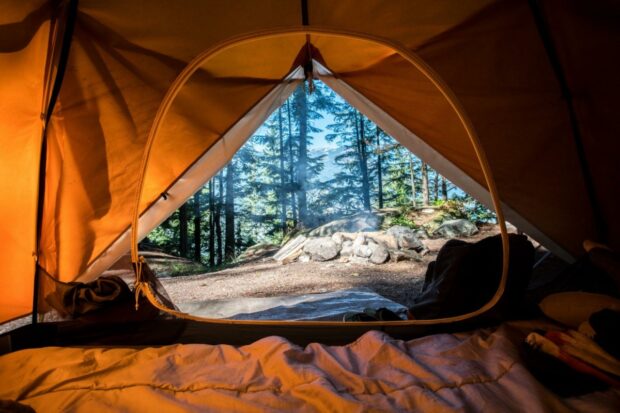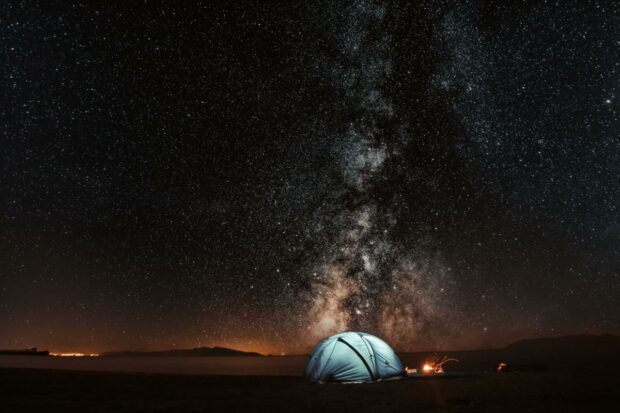Don’t Be a Novice Camper! Master the Wild with These Top Strategies
Camping is a cherished outdoor activity that allows us to connect with nature, escape the hustle and bustle of everyday life, and create lasting memories. Whether you’re a novice or a seasoned camper, there’s always room for improvement when it comes to mastering the wild. In this article, we’ll explore some top strategies to help you become a more proficient and confident camper. From essential gear choices to expert fire-building techniques, and even tips for sustainable camping practices, we’ve got you covered.

Gear Up for Success: Selecting the Right Equipment
One of the fundamental keys to a successful camping trip is having the right gear. Novice campers often make the mistake of overpacking or not bringing the essentials. To avoid these pitfalls, start by investing in quality camping gear. A sturdy tent that can withstand various weather conditions, a comfortable sleeping bag, and a reliable camping stove are among the essentials.
Furthermore, consider the season and location of your camping trip when selecting your gear. Dress in layers, choose moisture-wicking clothing and bring appropriate footwear. Don’t forget about personal hygiene items and first-aid supplies. Being prepared with the right equipment can make your camping experience more enjoyable and comfortable, allowing you to focus on the beauty of the outdoors.
Online Resources: Where to Find Camping Gear Advice and Suggestions
In the age of the internet, a world of camping gear advice and suggestions is just a click away. There are numerous websites and online communities dedicated to helping both novice and experienced campers make informed decisions about their gear. Platforms like Rtivities offer comprehensive reviews, expert advice, and user-generated content that can help you select the right equipment for your specific needs. Additionally, forums like Reddit’s r/camping and camping-specific Facebook groups provide a space for campers to ask questions and share their experiences, making it easier than ever to tap into a wealth of knowledge before embarking on your outdoor adventure.
Whether you’re in search of the perfect tent, a reliable camping stove, or even information on rental villas in Spain for a unique camping experience, these online resources can be invaluable tools in your quest to master the art of camping.
Mastering the Art of Fire-Building
Building a fire is not only a practical skill but also a time-honored camping tradition. A well-constructed fire can provide warmth, cook food, and create a cozy ambiance. However, many novice campers struggle with this essential camping skill. To become a fire-building pro, follow these steps:
Gather the Right Materials: Start with dry leaves, twigs, and small branches as fuel. Gradually add larger sticks and logs as the fire grows. Make sure your firewood is dry to prevent excessive smoke.
Use the Right Fire Structure: There are various fire-building techniques, such as teepee, log cabin, or lean-to. Choose the one that suits your needs and the available materials. Ensure proper airflow by leaving gaps between the logs.
Safety First: Always have a water source nearby and keep a fire extinguisher or a bucket of sand within reach. Never leave a fire unattended; completely extinguish it before leaving your campsite.
Practice Makes Perfect: Fire-building is a skill that improves with practice. Spend time honing your abilities before your camping trip to avoid frustration in the wilderness.

Sustainable Camping: Leave No Trace
As responsible campers, it’s crucial to minimize our impact on the environment. Leave No Trace (LNT) principles provide a framework for practicing eco-friendly camping. Here are some key LNT principles to follow:
Pack it in, Pack it out: Bring reusable containers for food and drinks, and make sure to take all trash with you. Leave your campsite as you found it, or even better, cleaner.
Stay on Established Trails: Avoid trampling on fragile vegetation and disturbing wildlife by sticking to designated trails. Respect any posted rules and regulations.
Minimize Campfire Impact: Use established fire rings or camp stoves when cooking. Don’t cut down live trees for firewood, and avoid building fires in fragile ecosystems.
Dispose of Waste Properly: Use designated restroom facilities when available. In the absence of toilets, dig a small cat hole at least 200 feet from water sources to bury human waste.
By following these sustainable camping practices, you’ll not only protect the natural beauty of the wilderness but also ensure that future generations can enjoy it as well.
Mastering the art of camping involves a combination of having the right gear, honing essential skills like fire-building, and practicing responsible camping ethics. Whether you’re a novice camper or a seasoned outdoor enthusiast, there’s always room for improvement. By following these top strategies, you’ll be better prepared to enjoy the great outdoors and create memorable camping experiences while leaving a positive impact on the environment. Happy camping!
